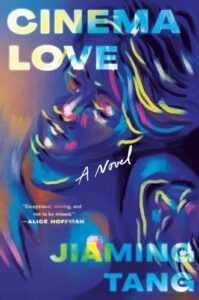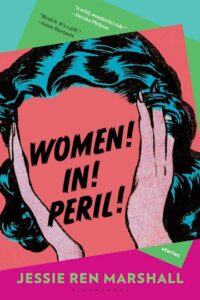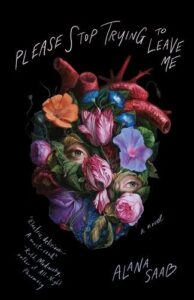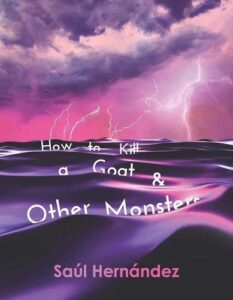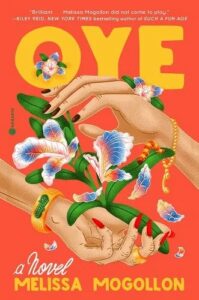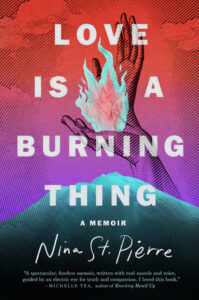In my second year of curating this list of debut LGBTQ+ authors on the books that shaped them as writers and members of the queer community, I’m thinking about language. Language as a means for the writer to discover and shape identity. Language as a point of connection between writer and reader experiences. Language as something bold and entirely our own, something we can, as contributor Jessie Ren Marshall writes, build “from the rubble.” Something we can queer.
In many of these authors’ responses, the language within their books of choice—which span genres, countries, and publication dates—empowered them to embrace their own distinct voices. The books below acted as guides for how these writers could offer queer perspectives without apology in their own work, pushing against binaries and stereotypes.
For the language—and a host of other elements from character development to time to dialogue—the recommendations of these ten writers are titles you’ll want to pick up, alongside the authors’ own spectacular 2024 debuts.
*
Jiaming Tang, Cinema Love
When I first read Chen Chen’s When I Grow Up I Want to Be a List of Further Possibilities, I felt like I’d been struck by a sledgehammer. It was a shock to read someone giving language to experiences I’d always thought invisible. What it felt like to be gay and Chinese in America. What it meant to belong to—and love—a community that didn’t always love me back. It wasn’t just the tenderness of his poems (nor the fact that he’d written about a Chinese-America that seemed similar to mine). No: The thing that affected me most was the playfulness of his language. The way he described “serious” topics with humor, reverence, sincerity, and joy.
I understand (now) that writing is the place where anything can happen. But back then, being 21 and eager to be taken seriously—and eager to have my Chinese-ness be taken seriously—I could only ever write in severe strokes. My stories were stern teachers with wagging fingers, and Chen Chen’s poetry taught me that I could put down my armor; my sword and my shield. Humor and joy aren’t oppositional to literary seriousness. A joke is sometimes the only response to grief.
Jessie Ren Marshall, Women! In! Peril!
The essays in Gertrude Stein’s Lectures in America have sensible titles like “Poetry and Grammar” and “What is English Literature,” but they’re repetitive and voicey and weird—i.e., classic Stein. I found the book as a college freshman after seeing The Wooster Group’s “House/Lights,” an adaptation of one of Stein’s plays. Her sentences made sense to me and then they didn’t, and when they didn’t, that was the most exciting part, because she was asking me to build my own language from the rubble.
This, to me, is queerness. Especially my queerness, an in-between-ness that’s multiple. I’m biracial and bisexual, and you might call my writing bi-genre. Over time, my understanding of the prefix “bi” has shifted to be expansive instead of restrictive. Where I once felt like the sum of two contradictory halves, 1/2 + 1/2 (but not truly belonging in either category), now I’m trying to see myself as two full things; 1 x 2, a product of multiplication.
Gertrude Stein was unabashedly multiple: a salon-starter, an Alice lover, a Hemingway wrangler, a Picasso enabler, a bully and artistic mother to all kinds of experimentation. She writes in Lectures, “an artist an artist inevitably has to do what is really exciting.” Stein was really exciting to me; she re-invented the English language and refused to be limited by other people’s expectations.
Brittany Rogers, Good Dress
I have read Song of Solomon by Toni Morrison nearly every year since I first encountered it during AP English in 11th grade. Few texts have been as instructive as this work; each read offers greater illumination for me as both a Black queer femme and as a Black writer. Although the protagonist Milkman is the technical hero of the text, Morrison gives so much life to the women around him that they are who I remember long after Milkman has taken flight.
In particular, I have always been enamored by the character Pilate Dead; her dark skin, her name strung from a solitary earring, her refusal to be governable. Pilate with no belly button, a wandering spirit, and a love so pure that people think it witchcraft. Pilate remains a model for crafting a life based on desires rather than tradition; she reminds me to push for what exists outside of the binaries of society in both life and writing. In fact, this entire novel is a masterclass in what it means to perfectly understand what tradition dictates, and to be audacious enough to disrupt those expectations. Song of Solomon is a novel that emboldens me to center the interiority of Black femmes, to play with time and language, and to queer the text until it is what I desire and envision without regard for any outside gaze.
Alana Saab, Please Stop Trying to Leave Me
Love Me Tender has the most lesbian cover: a photograph of French author Constance Debré dawning a shaved head and neck tattoo. Like the cover, the text is brutal, reminding the reader with every minimal sentence that, when you’re LGBTQ+, love can be used as a weapon against you. Debré hides nothing in this autofictional memoir. Not even her own ugly parts. After being vilified by her ex-husband in court and losing custody of her son, Debré relentlessly interrogates womanhood, motherhood, identity, and love. She explores how this foursome colludes against those who look, act or feel something different. Something queer.
This book taught me that I don’t have to apologize for or poeticize queerness in my work in order to justify its (or my) place in a heteronormative world. I don’t need to gain sympathy from straight readers in a plea for their acceptance. Debré opened my eyes to a different idea: Queer people have unique perspectives on society. Ones that need to be heard as the world literally burns.
LGBTQ+ people have either already been stripped of everything—like Debré—or we live under the looming danger that we can be stripped of everything, at any moment. This truth allows us to dissect concepts like motherhood in new ways and conceive of alternate ways of being that are rarely accessible to the majority. After Love Me Tender, I’ve come to feel that my job as a queer writer is not to convince people of my existence, but to see existence from my perspective and report back.
Zoë Bossiere, Cactus Country
When I discovered Kate Bornstein’s My Gender Workbook: How to Become a Real Man, a Real Woman, the Real You, or Something Else Entirely I was 15 years old, and spending a lot of my time on the internet searching for someone—anyone—who felt like I did. After living as a trans boy in Cactus Country RV Park for four years my body was starting to change in ways that felt all wrong. I knew that I wouldn’t grow into a man, but womanhood was equally unthinkable.
What, I wondered, did that make me?
In the absence of an answer, I pored over the Workbook’s many questionnaires, writing in pencil so I could erase my responses and peruse the book again and again. Over time, its margins became littered with previous answers from the questions I’d posed to friends and family, lists of pronouns I wanted to try out, and drawings based on Bornstein’s hilarious anecdotes. I opened my copy so many times its spine cracked, marked-up pages spilling out from its center like queer homework sheets. During a time before nonbinary identities were widely recognized, My Gender Workbook became the one text I returned to for comfort and validation, one that would later inform the kind of book I most wanted to write.
Saúl Hernández, How to Kill a Goat and Other Monsters
In undergrad, I had come out of the closet and I was experiencing my queer awakening. I felt like I was finally becoming the person I wanted to be as I held hands with men I went on dates with and went to gay bars without feeling judgment. In my Mexican American Literature course, I encountered the book Everything Begins & Ends in The Kentucky Club by Benjamin Alire Sáenz. The short stories in this collection are interconnected around the world-famous Kentucky Club. Here, diverse characters from the sister cities of El Paso, Texas, USA and Cuidad Juárez, Chihuahua, Mexico, cross physical and metaphorical borders as they explore love, identity, economic background, language, loss, and the complexities of human connection.
All of these characters are in search of truth like I was. These short stories taught me so much about poetry and about my own writing. The first short story, “He Has Gone to be with the Women,” showed me how an image can be a thread carrying the story through, but also how image-building can create foreshadowing. The fourth short story, “Brother in Another Language,” demonstrated how to push dialogue and create tension through voicing truth in moments where lingering silence can haunt us. This collection also creates setting in surprising ways and was a master class on how to write with authenticity. In my exploration of selfhood, like these characters, I kept coming back to the Sáenz’s question: “I just wanted to go home. But where was home?” Most importantly, Everything Begins & Ends in The Kentucky Club taught me about what love can be and do.
Temim Fruchter, City of Laughter
A cursory search of my Gmail ‘sent’ folder reveals what I suspected: Emails to old flames and old loves and old crushes are littered with references to Anne Carson. Mostly: “Have you read Autobiography of Red? Can I read to you sometime from Autobiography of Red? Here’s a quote I love from Autobiography of Red.” I was nineteen when meeting Geryon, Carson’s Greek-myth-inflected red-winged monster, led me to experience perhaps one of my first moments of giddy, dizzying, full-body queer recognition.
Queer in form as it is in content, Autobiography of Red surrounded me as I read it, making the world shimmer with sensual possibility. I had long felt like some essential thing about being alive and desirous resisted language, and Carson’s hybrid work taught me that language, when wildly applied, might actually begin to touch it. Feral in its relentlessness and lush in its abundance, her language is unruly, anarchic, fragmented; seams all visible, but not at the expense of elegance. Not unrelated to that early experience of queer embodiment as I read, Carson’s work made me feel like I, too, wanted to write collage or verse or curios or fragments, and that in this way, I might assemble something jagged and glittering as treasure. Autobiography of Red ushered me across a vivid threshold then, as a reader, as a writer, and as the queer winged monster I dearly hoped I’d one day become.
Emma Specter, More, Please
I stole my copy of My Education by Susan Choi from my dad’s bookshelf in 2018, reasoning that as a relatively newly-out dyke still grappling with complicated leftover feelings around male approval and compulsory heterosexuality, I needed this particular emo bisexual campus novel more than he did.
I did learn a lot about queerness from the book (most specifically, how to craft a uniquely horny and stunning sex scene; one of Choi’s includes the lines “Had I been a doll, she might have twisted off each of my limbs, and sucked the knobs until they glistened, and drilled her tongue into each of the holes,” which…goddamn), but what I learned even more about was how to put together a portrait of a person at a very specific time in their life, something that has served me as a memoirist as well as a fledgling novelist whose fiction efforts are currently still at the “Google Doc stage,” as I like to call it.
Writers don’t always get the privilege of meeting their protagonists at the most ideal, opportune times of their lives, even if that protagonist is, in memoir, you; Choi lets us see her narrator, Regina, in all her early-twenties ugliness and petty desire and shame and humiliation. Meeting Regina there—then being reintroduced to an older version of her in one of the least jarring, most earned time jumps I’ve encountered in fiction—helped me feel like telling my own story in More, Please didn’t preclude the possibility of telling other stories down the line. I want every book to be as memorable and tightly crafted and stunningly gay as this one, TBH.
Melissa Mogollon, Oye
Fiebre Tropical by Julián Delgado Lopera is pure music. Reading about Francisca, the novel’s 15-year-old queer Colombian narrator immigrating to South Florida, through her own words and thoughts expanded what I thought literature could be for me, both in queer and Latin American identity. It felt like Delgado Lopera had planted a recorder in my childhood home and was replaying multiple formative experiences of mine. And what the book does with language and form is mind-bending! I mean, the voice…THE VOICE! The Spanglish! The intense, intimate, and, at times, suffocating seat we take immediately from the first sentence of the first page: “Buenos días, mi reina. Immigrant criolla here reporting desde los Mayamis from our ant-infested townhouse.” Fiebre Tropical helped me remember my body. And it made me want to do everything with it. Dance, write, jump, and love. Much like Francisca, I had been circling my own queerness for so long, feeling pressured to consider long lineages of people when it came to embodying who I was. Reading this book gave me a euphoria so deep, from finally reading something familiar–it felt like seeing a hand extend and wave at me from the abyss.
Nina St. Pierre, Love Is a Burning Thing
Freshwater by Akwaeke Emezi came out the same year as I did—though I didn’t really think of it as coming out; more like coming into awareness of queerness that had always been. I was seven years deep into writing my memoir, an exploration of the blurred lines between mysticism and madness, and had just fallen in love with a woman for the first time. I was trying to write esoteric things grounded in the body, and was finding language quite limiting. Maybe it’s because I kept trying to make the ineffable palatable. For example: what it means for a body to burn in offering, the transcendent fizzy joy of being swept up in a crowd of worshippers, or this one surreal moment I’d had during a very traumatic period in my teen years where I felt like a snake was eating out my insides and experienced a sort of spiritual death.
In Freshwater, the main character, Ada is ogbanje, and there are various narrative voices to represent the god(s) living within her. At one point, the “we” voice says: “So we were still caged inside the Ada, with the grainy memory of charcoal coating the back of her throat. She was more isolated than ever and we were still chafing at being flesh, so the only thing left to do was hunt. If we were trapped in a body, then we would do bodily things.” Emezi’s work showed me that I was trying to explain liminal moments instead of allowing the prose to become the experience. Their work demonstrated the capability of language to bend and morph into something nonhuman, godly, even—to transcend not only manufactured binaries but categorizations, entirely. Writing is always a translation of experience, but reading Freshwater was the closest I’d ever felt to an embodied grotesque transcendent—not the idea of it, but the thing itself. It blew open doors for me that I’m still waiting to pass through.

